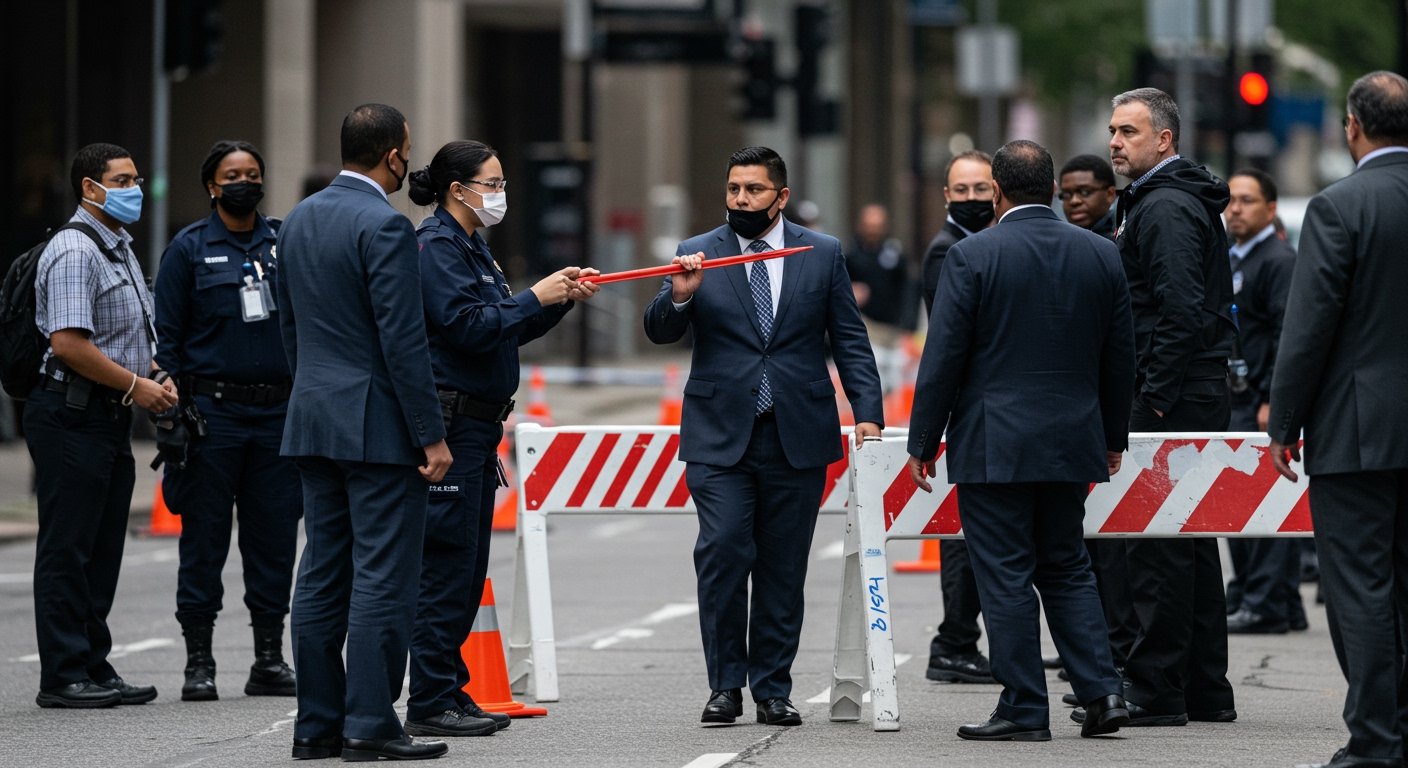Washington, D.C. – Just days after President Donald Trump ordered a temporary pause to immigration enforcement actions disrupting key sectors of the American economy, the administration signaled a swift and dramatic shift back towards aggressive worksite operations, leaving businesses in farming, ranching, hospitality, and other industries reeling from confusion and uncertainty.
Last week, managers across the country, from farmers and cattle ranchers to operators of hotels and restaurants, expressed a sense of relief following reports from the Associated Press that the President had directed a halt to the raids. This directive, seemingly aimed at easing the operational challenges faced by industries reliant on immigrant labor, was seen by many as a welcome, albeit temporary, reprieve.
Policy Reversal Stokes Confusion
However, that sense of calm proved fleeting. On Wednesday, Tricia McLaughlin, Assistant Secretary of the Department of Homeland Security, issued a statement that contradicted the perceived pause and injected renewed apprehension into business communities. McLaughlin asserted there would be “no safe spaces for industries who harbor violent criminals or purposely try to undermine (immigration enforcement) efforts,” emphatically stating that worksite enforcement remains a fundamental cornerstone of their efforts.
This rapid pivot has created significant confusion among employers. Rebecca Shi, CEO of the American Business Immigration Coalition, which represents a vast network of 1,700 employers across various sectors, noted the abrupt transition. Shi described the initial period after the President’s apparent pause as one of calm, which has now been decisively replaced by fear and worry across their membership.
Enforcement Escalation and On-the-Ground Impact
The intensified crackdown on worksites reportedly escalated in recent weeks. According to reports, this intensification followed an alleged directive from Stephen Miller, White House deputy chief of staff, who is said to have given U.S. Immigration and Customs Enforcement (ICE) a demanding quota of 3,000 arrests a day. This figure represents a significant increase compared to the reported 650 arrests a day in the first five months of what was referenced in source material as Trump’s second term.
The consequences of this heightened enforcement have been stark and immediate for businesses and workers alike. Raids have reportedly led to disturbing situations, including instances where ICE agents were alleged to have pointed assault rifles at livestock, such as cows, during operations on farms. More significantly, raids have resulted in the removal of substantial portions of the workforce, in some cases reportedly taking away half the staff on affected farms.
A specific case highlighted the severity of this disruption: one ICE raid conducted at a dairy operation in New Mexico left the business with only 20 workers remaining, a drastic reduction from its previous staff of 55. Such sudden and severe labor shortages make day-to-day operations and long-term planning exceedingly difficult, if not impossible, for these businesses.
Human Toll and Economic Implications
Beyond the operational challenges, the fear among immigrant communities, particularly parents, about the risk of workplace raids is palpable. Jennie Murray, CEO of the National Immigration Forum, underscored this profound fear, highlighting the distress experienced by families concerned about the potential for separation caused by enforcement actions at workplaces.
Businesses across affected sectors are finding it increasingly challenging to operate effectively under the shadow of such unpredictable and volatile enforcement policy. The uncertainty surrounding immigration enforcement creates an unstable environment for investment, hiring, and production.
Economists point to a fundamental misalignment between aggressive immigration enforcement and other national economic objectives. Douglas Holtz Eakin, formerly the director of the Congressional Budget Office and currently the president of the American Action Forum, commented that the detention or removal of individuals, even those who are lawful immigrants with established work histories, runs counter to broader economic goals. This creates a tension between immigration policy focused on enforcement and economic policy aimed at growth and stability.
Industry Advocacy and Presidential Acknowledgement
In response to the significant disruptions and economic concerns, businesses and industry groups have actively conveyed these issues and their consequences to both the Trump administration and members of Congress. These appeals highlighted the critical dependence of sectors like farming and hospitality on immigrant labor and the damage inflicted by unpredictable enforcement actions.
The outreach appears to have registered with the administration, at least partially. In a post on his Truth Social platform last Thursday, President Trump acknowledged the adverse effects of aggressive immigration policy on the availability of workers essential to the farming and hospitality industries. This rare public acknowledgment from the President underscored the severity of the labor shortages reported by businesses.
Lingering Uncertainty
Despite the presidential acknowledgment of the problem, the recent statements from the Department of Homeland Security reaffirming the focus on worksite enforcement suggest that the operational uncertainty for businesses is far from over. As industries navigate this complex and rapidly shifting landscape, the balance between immigration enforcement priorities and the needs of the American economy remains a critical and unresolved challenge.





